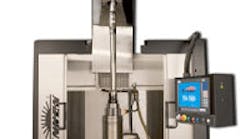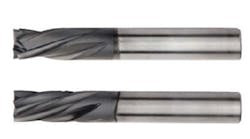The Nomura/JMMA Japan Purchasing Managers Index, which gives an early snapshot of the health of manufacturing, declined to a seasonally adjusted 44.3 in September from 46.9 in August. This is the lowest reading in more than 6 years. A reading below 50 points to a contraction, while a figure above that suggests expansion.
"The overall health of the Japanese manufacturing sector remained fragile," Alex Hamilton, an economist at research firm Markit, which polled more than 400 companies for the survey said. "Current turmoil in global financial markets suggests that a quick recovery for the sector seems unlikely," he added.
The PMI declined to a seasonally adjusted 44.3 in September from 46.9 in August, pushing it further below the 50-point mark that points to a contraction in manufacturing. The PMI's output index, which approximates industrial production, fell to 40.9 in September from 43.7 in August, marking the lowest reading since December 2001, when it logged 37.7. Respondents to the survey said weak demand and sluggish global market conditions prompted them to curb production.
Japan's trade balance fell into deficit in August, as exports to the United States posted their sharpest fall from a year earlier. It was the first negative figure since 1982 except for January, when exports usually drop due to new year holidays.
The Japan Machine Tool Builders' Association said Japanese machine tool orders fell 14.2 percent in August from a year earlier to 111,297 million yen, the third straight month of fall.
Domestic demand dropped 14.2 percent to 46,248 million yen, falling for the seventh consecutive month. Foreign demand was down 14.2 percent at 65,049 million yen, the third straight decline.
Data released by the Bank of Korea showed that inflationary pressures in the South Korean economy slightly lessened in August. According to the central bank, South Korea's producer price index, or PPI increased 12.3 percent year-over-year in August, moving lower from the 10-year high of 12.5 percent recorded in July. The easing was largely due to recent declines in oil and commodity prices. On a monthly basis, the PPI declined 0.3 percent in August, after rising 1.9 percent in July.
In other news, India's newly appointed central bank governor Duvvuri Subbarao said dampening demand and anchoring inflation expectations has been the logic behind Reserve Bank's monetary stance.
In Indonesia, consumer confidence rose to 89.3 in August from 82.1 in July.
Latest from Uncategorized
Latest from Uncategorized
Uncategorized
Newsletter Confirmation Page
Oct. 29, 2012
Uncategorized
Gearmaking with Precision, and Speed
July 26, 2012
Uncategorized
Composites, With No Limits
July 25, 2012



